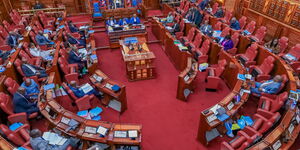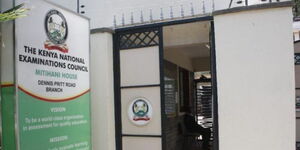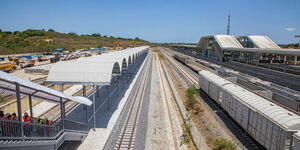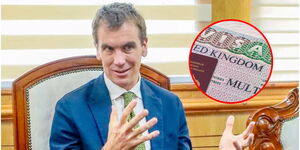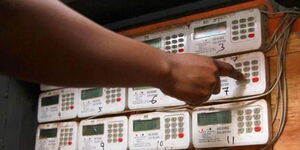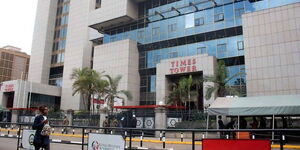The Bezos Earth Fund has selected Kenya's Rift Valley among the beneficiaries of Ksh3.3 billion (USD 22.8 million) funding for the restoration of 600,000 hectares of land ravaged by climate change.
On Tuesday, Bezos Earth Fund President and CEO Andrew Steer disclosed that the funds will benefit the Rift Valley in Kenya and Lake Kivu and the Rusizi River Basin, on the border of DRC, Rwanda, and Burundi.
"Africa is home to the world's largest restoration opportunity and is a critical player in the global move against climate change, nature loss and poverty," Steer stated.
Billionaire Jeff Bezos founded the Bezos Earth Fund to mitigate climate change and protect nature.
While speaking during the Africa Climate Summit, Steer explained the funds will be used for carbon sequestration (storing carbon in a carbon pool), biodiversity, and human wellbeing.
Carbon sequestration is split into two; biological (passive or indirect) and geological (direct or artificial). Biological carbon sequestration happens when carbon is stored in the natural environment in ‘carbon sinks’, such as forests, grasslands, soil, oceans and other bodies of water.
Geological carbon sequestration occurs when carbon is stored in places such as underground geological formations or rocks. This is an artificial neutralisation of emissions caused by human practices, such as manufacturing or construction.
In Rift Valley, the funds will enable the restoration of 600,000 hectares of degraded land, as forests and woodlands are considered one of the best forms of natural carbon sequestration. Deforestation, on the other hand, poses the biggest threat to this natural process, as does construction or intensive agriculture.
CEO Andrew Steer also emphasised the funds will be vital in empowering the vulnerable people in society and transforming their landscapes and livelihoods.
"With these grants, we are proud to support the next generation of African institutions that are at the heart of the continent's restoration movement and begin the vital work of leveraging philanthropy into private investment in restoration," the CEO remarked.
Wanjira Mathai, the Earth Fund's advisor for Africa and Managing Director at the World Resource Institute, explained that scaling restoration across Africa would be impossible without local leadership, wisdom, and passion.
"Africa is home to some of our planet's greatest restoration successes, and this funding will support locally-led restoration to re-green our beautiful African continent," she added.
During the three-day summit held at the Kenya International Conference Centre (KICC), Kenya received a major boost in its efforts to deal with the effects of climate change.
The country is set to benefit from Ksh600 billion from COP 28 President Sultan Al Jaber, Ksh1.8 billion from the European Union, and Ksh452 billion from the US.
COP 28 (the 28th global UN Climate Change Conference) will be held at the Expo City in Dubai from November 30 until December 12 this year. It aims to fast-track the global transition to clean energy and decarbonize the energy industry in an attempt to limit global warming to 1.5°C.
The inaugural Africa Climate Summit held in Kenya is one of the Regional Climate Weeks held this year to build momentum ahead of COP 28.
President William Ruto also promised to disburse Ksh7.2 billion to counties to finance local climate action activities.
"I encourage the local climate action activities to go further and offer more robust support for our efforts to grow," Ruto stated.

